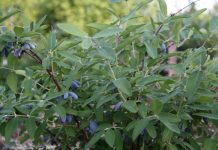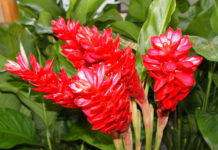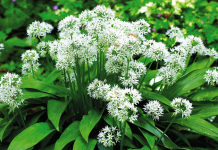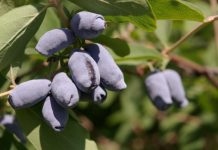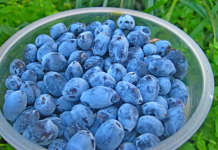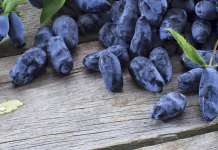In the modern world, Juniper Blue Alps is more and more common in urban environments and in adjoining areas. Thanks to its compact form, the bush becomes a great addition to any landscape.
Material Content:
Description of the variety and type of juniper Chinese "Blue Alps"
China is considered the birthplace of the evergreen shrub, it was from there that the plant got to the European continent and, in particular, to the Russian Federation. Belongs to the Cypress family. An adult plant can grow up to 4 meters, and the diameter of the branched crown is often 2 meters. The needles are distinguished by a silver-blue color, which distinguishes juniper Blue Alps from similar bushes. The central part of the plant is formed by powerful and dense branches.
Blue Alps can grow as a single bush, and in group plantings. Thanks to this, it organically fits both in the rockery and in the rock garden. Often juniper can be seen on terraces, open lawns and rose gardens.
Coniferous shrubs are one of the most unpretentious plants. He does not need any special soil, he is resistant to winds, and frosts, and droughts.
Please note that the fruits of juniper should never be eaten. They contain hazardous substances and can adversely affect health.
Outdoor landing
To date, the Blue Alps variety is considered one of the most famous and sought after among gardeners. Due to its unpretentiousness, shape, rich color and elementary requirements for care, the plant is used by both experienced gardeners and beginners.
There are several rules for planting the juniper of the Chinese Blue Alps:
- Given the size of the bushes, when planting the material in the soil, it is necessary to adhere to a distance of 0.5-1.5 m between the seedlings.
- The territory on which the bush will grow should be open and receive a sufficient amount of light, only slight dimming is allowed.
- The pit is deep, a drainage coating of expanded clay and sand is poured into the bottom. Instead of the first, you can use broken brick.
- The soil should be neutral or have a medium acid reaction.
- It is better that the root neck remains on the surface, it is not worth deepening it.
- Plantings are recommended to sprinkle with a layer of mulch, consisting of wood chips or sawdust.
- After planting, the juniper must be watered thoroughly and regularly, do not forget to introduce complementary foods.
Juniper can be planted in the ground both in spring and autumn, until the end of October.
Evergreen Shrub Care
There are several basic rules that will help you grow a healthy and beautiful shrub in your area:
- In the driest summer months, pay particular attention to juniper irrigation. For the season it is required to add water 2-3 times. One procedure for an adult plant requires from 10 to 30 liters. Once a week, in the evenings, you can spray. Chinese juniper is negatively affected by dry air.
- Young seedlings must be loosened regularly. The procedure is carried out after watering. Loosening is done carefully and superficially so as not to damage the young roots. After planting seedlings, the soil is mulched. To do this, use wood chips, peat, pine bark and pine nutshells.
- Chinese juniper is growing slowly, pruning is carried out with extreme caution. For the procedure, spring or autumn months are suitable, you can spend it in the summer.
- Young seedlings are required to wrap up for the winter.
Protection against diseases and pests
The most common pests that infect this plant are:
- mole;
- aphid;
- spider mites;
- scale insects.
To get rid of parasites, experts recommend the use of Fitoverm. In spring, they need to spray Chinese juniper for prevention. Other effective drugs include Karbofos, Karate, and Decis.
If you find pests on the bushes, then treat them twice with Fitoverm. He is bred according to a simple scheme - 2 grams of substance per 1 liter of water. The interval between sprayings is 14 days.
A plant is almost never affected by infections or fungal diseases. Improper care may cause rust and alternariosis. In a similar situation, Bordeaux fluid will come to the rescue.
Use in landscape design
Juniper Blue Alps is considered a real find for landscape design. This is an excellent structural plant, which can be given any shape through clipping. It is used to design summer cottages, landed in parks and recreation areas.
Juniper needles have antiseptic properties, it not only cleans the air, but mosquitoes also do not like it. That is why next to the bush you can not be afraid of mosquito bites.
If you plant Blue Alps at your site, you can be sure that you will receive a beautiful and useful decoration that will please you for more than one year.








